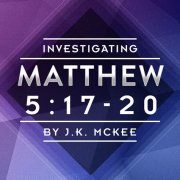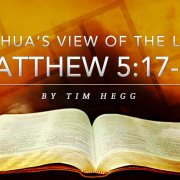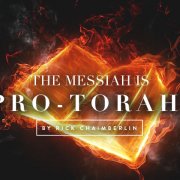Matthew 5:17-20 – A Thorough Investigation
According to Yeshua the Messiah’s words here in Matthew 5:17, delivered within His Sermon on the Mount in Matthew chs. 5-7, the Savior clearly states what His views are regarding the Torah of Moses. Along with Psalm 23 and the Ten Commandments (Exodus 20:1-17), Matthew 5-7 includes the Beatitudes (Matthew 5:2-12) and the Lord’s Prayer (Matthew 6:9-13), the four passages together composing the most frequently read and valued sections of the Bible for most evangelical Christians. Yeshua’s statements about the Torah are not at all hidden away in some obscure place. Jesus says very plainly that His purpose was not to “abolish” the Torah or Law of Moses, but to “fulfill” it. Gain a deeper understanding of Matthew 5:17-20 from a pro-torah perspective. [Read more]




Recent Comments: